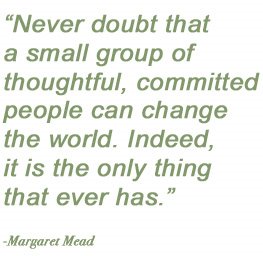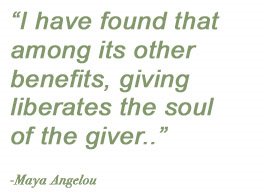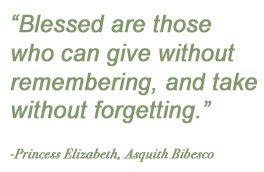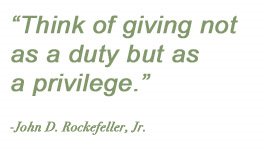Tuesday, August 11, 2009
“I GIVE UP” Defined
Post your comments and examples of giving-upwards remember one act of kindness can make a difference.
Tuesday, July 14, 2009
Key Quotes from President Obama's speech A New Moment of Promise
I am speaking to you at the end of a long trip. I began in Russia, for a Summit between two great powers. I traveled to Italy, for a meeting of the world's leading economies. And I have come here, to Ghana, for a simple reason: the 21st century will be shaped by what happens not just in Rome or Moscow or Washington, but by what happens in Accra as well.
...we must first recognize a fundamental truth that you have given life to in Ghana: development depends upon good governance. That is the ingredient which has been missing in far too many places, for far too long. That is the change that can unlock Africa's potential. And that is a responsibility that can only be met by Africans.
As for America and the West, our commitment must be measured by more than just the dollars we spend. I have pledged substantial increases in our foreign assistance, which is in Africa's interest and America's. But the true sign of success is not whether we are a source of aid that helps people scrape by - it is whether we are partners in building the capacity for transformational change.
Across Africa, we have seen countless examples of people taking control of their destiny, and making change from the bottom up. We saw it in Kenya, where civil society and business came together to help stop post-election violence. We saw it in South Africa, where over three quarters of the country voted in the recent election - the fourth since the end of Apartheid. We saw it in Zimbabwe, where the Election Support Network braved brutal repression to stand up for the principle that a person's vote is their sacred right.
Africa doesn't need strongmen, it needs strong institutions.People everywhere should have the right to start a business or get an education without paying a bribe. We have a responsibility to support those who act responsibly and to isolate those who don't, and that is exactly what America will do.
With better governance, I have no doubt that Africa holds the promise of a broader base for prosperity. The continent is rich in natural resources. And from cell phone entrepreneurs to small farmers, Africans have shown the capacity and commitment to create their own opportunities.
Aid is not an end in itself. The purpose of foreign assistance must be creating the conditions where it is no longer needed.
Africa gives off less greenhouse gas than any other part of the world, but it is the most threatened by climate change.
Wealthy nations must open our doors to goods and services from Africa in a meaningful way. And where there is good governance, we can broaden prosperity through public-private partnerships that invest in better roads and electricity; capacity-building that trains people to grow a business; and financial services that reach poor and rural areas. This is also in our own interest - for if people are lifted out of poverty and wealth is created in Africa, new markets will open for our own goods.
When children are being killed because of a mosquito bite, and mothers are dying in childbirth, then we know that more progress must be made.
With strong institutions and a strong will, I know that Africans can live their dreams in Nairobi and Lagos; in Kigali and Kinshasa; in Harare and right here in Accra.
White House Advisory Council Maps Out Faith-Based Plans
WASHINGTON (RNS) Members of a new White House advisory council mapped out plans to link government and religious groups, from interfaith service projects to regional town halls on fatherhood, during a two-day meeting that ended Thursday (July 9).
Eboo Patel, founder of Chicago-based Interfaith Youth Core, said his task force of the Advisory Council on Faith-based and Neighborhood Partnerships will work to advance President Obama’s discussion about interfaith cooperation by fostering hands-on activities.
“Can we have interfaith service projects on 500 campuses?” he asked fellow leaders on the 25-member council. “Can we work with 25 State Department embassies to have interfaith service projects?”
Council members discussed the priorities of six task forces, which range from reforming the faith-based office to addressing the economic crisis.
Melissa Rogers, an expert on religion and public affairs at Wake Forest University School of Divinity, said the task force charged with reforming the office will examine everything from executive orders to PowerPoint presentations to ensure church-state restrictions are clear when religious organizations partner with the government.
Several council members told administration officials they want to make sure that government partnerships extend to the city and county level—in part to ensure that economic recovery funds reach struggling grass-roots nonprofits.
Joshua DuBois, the executive director of the office, said he expects intergovernmental outreach to increase, but is seeking recommendations from the advisers on best approaches for that cooperation.
Many of the advisers’ proposals will be developed into a report to the White House next year. Some of their work will be evident before then, such as regional town hall meetings on fatherhood scheduled for later this year.
Summer Brings a Wave of Homeless Families

By JULIE BOSMAN
Published: July 6, 2009
As the school year sailed to a close last month, Arielle Figueras crossed the stage in her cap and gown and proudly accepted her fifth-grade diploma.
The next day, she was homeless.
Arielle, a petite 11-year-old, and her parents, brother and sister packed their belongings and arrived at the intake center for homeless families in the South Bronx. Though they had been fighting with their landlord for months and their gas and electricity had long been shut off, they refused to leave their apartment while school was in session.
“She was graduating, so we had to wait,” Arielle’s mother, Marilyn Maldonado, said. “We just didn’t want to disrupt their routines. We couldn’t do that to them.”
Many New Yorkers view summer as a time for vacations, camp and lazy days at the beach. But city officials have been preparing for quite a different summer ritual: the swelling of the population of homeless families.
They call it the summer surge, and say that this year could be the worst yet.
Because the homeless population this spring was up more than 20 percent over last spring, possibly because of higher unemployment, officials are girding for an all-time high in the number of families in shelters at once, expecting close to 10,000. Already, the number has reached 9,420.
Other cities are noticing a similar trend. In Toledo, Ohio, one overcrowded shelter has been turning away dozens of people each night. In Charlotte, N.C., a shelter that is typically open only in winter has stayed open for the summer to meet demand, which is 20 percent higher than last summer. Across town, a Salvation Army shelter is so full, it has set up mats on the floors.
The reasons are varied but simple. Landlords who are reluctant to evict during winter are less hesitant when it is warmer. Parents like the Maldonados, who have endured poor housing conditions to spare their children agitation and humiliation at school, finally pack up and leave. And relatives who have taken in families in cramped apartments lose patience when children are suddenly underfoot all day long.
“When school’s open, families tend to stay where they are,” said Deronda Metz, the director of social services for the Salvation Army in Charlotte. “And when school’s out, they’re told it’s time to go.”
In New York, the number of homeless families applying for shelter in the summer has been 28 percent higher than the rest of the year the last three years. Their first stop is the intake center, a 24-hour, sprawling 66,000-square-foot brick building in the Bronx. They must walk through metal detectors, must submit to questioning from social workers and, after hours of waiting for their names to be called, are bused to a temporary hotel room or apartment.
Workers have begun to make room for the hundreds of extra families that are expected at the center this summer. On the second floor, all of the cubicles in one room were dismantled, replaced by rows of plastic chairs to make a waiting room for up to 114 people. Rows of boxy light gray metal lockers — each large enough to hold several suitcases — were installed. Employees at the intake center are being limited to one week of vacation during July and August.
Just a few hours after the public schools let out for summer, families began trickling into the center, their faces tight with stress. One woman walked briskly inside with her young son, who wore a bright blue backpack and held an armful of books. Another woman, who would not give her name, waited outside with her daughter, who had just finished second grade. “My sister said we couldn’t stay with her anymore,” she said, fanning herself for some relief from the humidity. “I said once she’s done with school, we’d get out.”
Arielle’s father, Douglas Maldonado, said that their landlord had stopped making repairs and had altered the building’s electric billing to make the Maldonados pay for other apartments’ power, up to $8,000 a month. But they held onto their apartment just long enough for Arielle’s graduation and for their son, Sabino Figueras, to graduate from eighth grade the week before.
The Bloomberg administration has run into trouble before with its handling of the summer influx of homeless families. In 2002, there was a public relations debacle when officials allowed hundreds of parents and children to wait in the intake office each day, more than three times the number that city fire codes allowed. Other families were placed in an empty men’s jail in the Bronx that was later discovered to have been contaminated with lead paint.
This summer, the administration will use a combination of existing homeless shelters that are not quite full and vacant apartment buildings that have been fixed up for homeless families, said Robert V. Hess, the commissioner of homeless services.
“We have a variety of options, so that we can be as nimble as possible,” Mr. Hess said. “We keep some reserve.”
One essential part of the city’s plan is to place families in hotels temporarily, some of which are used for both homeless people and paying customers.
Mr. Maldonado’s family spent its first few nights in a hotel on 145th Street in the Bronx. One of the mattresses in the room, Mr. Maldonado said, was filthy and stained with urine.
On June 28, Tarshima Dixon, a mother of four, went to the intake center with her 14-year-old son, Jason. Two more sons, Craig Dixon, 13, and Nahjee Johnson, 8, waited outside with their grandmother and cheerfully bounced a basketball on the sidewalk as Michael Jackson’s “Billie Jean” played from their minivan’s stereo.
The family was evicted in April, and Ms. Dixon’s mother did not have room for all of them. So Ms. Dixon, along with Craig, Nahjee and another son, Gregory, 16, moved into a shelter in Brooklyn soon after. Jason had been living with his father in Camden, N.J., but Ms. Dixon wanted him back with his brothers. They had to come to the intake center to let the city know there would be one more homeless person needing a bed.
“He just finished school this week,” said Ms. Dixon, who added that she was determined that the whole family would move into an apartment by August. “I wasn’t going to bring him here until he was done.”
Friday, January 18, 2008
Random Acts of Kindness

Imagine thousands of people experiencing God's love through random acts of kindness... you can make it happen! WAKW 93.3 FM and WCPO-TV are partnering to bring National Random Acts of Kindness Week to Cincinnati. From February 11–17, we're encouraging you to reach out and commit random acts of kindness. And we'll supply plenty of resources to help you.
Friday, October 05, 2007

For the first time in history, our generation has the tools, technology, and resources to end extreme poverty and yet, a billion people still live on less than a dollar a day.

What's missing is the will.
This challenge is about building that will. Whether that means recruiting friend s, sending letters to Congress, or raising visibility by snapping a shot of your mascot in a ONE shirt, we'll use a system of points to track what you've accomplished.
s, sending letters to Congress, or raising visibility by snapping a shot of your mascot in a ONE shirt, we'll use a system of points to track what you've accomplished.
Throughout the challenges' three stages, ONE will reward campuses for their efforts. In January, at the beginning of phase 2, ONE will fly representatives from the top 100 schools to D.C. for an elite three-day conference, and in February, at the start of phase 3, ONE will present the top 10 schools with grants to fund their own poverty-fighting programs.
In the end, ONE will reward the school that proves that its students are the most  creative and effective poverty fighters in the country.
creative and effective poverty fighters in the country.
But this is no game. Students have played crucial roles in every great movement in American history. From the abolitionists, to the suffrage and civil rights movements and apartheid, students have been able to create energy, focus the nation's attention and create real change. This generation is no different.
The only question that remains is: Can we do it?
Thursday, September 06, 2007
| THE OPRAH WINFREY SHOW Make a Difference |
| |
| |
 |
Matt and Jessica Flannery Started KIVA Matt and Jessica Flannery were newlyweds working in East Africa when they came up with the idea for Kiva. According to Matt, $10 million in loans have been made through the organization—and 99.7 percent of the money has been repaid! Matt says it takes about 1.5 days for the average entrepreneur to receive funding for a project through the website. "We use PayPal, who provides us free payment processing," he says. "People loan through PayPal through Kiva, and we wire that money directly to the field partner that gives it to the entrepreneur." Learn more about www.kiva.org. Jessica says she and Matt were first inspired by seeing entrepreneurs in East Africa doing great things with their families with small amounts of money. "It's their shot. And they just soar. They take it and they run with it," she says. "So to see so many borrowers, to know that that's happening with thousands of individuals because of Kiva, but also to know that other people can be connected and participate in the stories the way that we were." How pennies gave Oprah an Aha! moment » |
KIVA
(WHAT WE DO)We let you loan to the working poor
Kiva lets you connect with and loan money to unique small businesses in the developing world. By choosing a business on Kiva.org, you can "sponsor a business" and help the world's working poor make great strides towards economic independence. Throughout the course of the loan (usually 6-12 months), you can receive email journal updates from the business you've sponsored. As loans are repaid, you get your loan money back.
We partner with organizations all over the world

Kiva partners with existing microfinance institutions. In doing so, we gain access to outstanding entrepreneurs from impoverished communities world-wide. Our partners are experts in choosing qualified borrowers. That said, they are usually short on funds. Through Kiva.org, our partners upload their borrower profiles directly to the site so you can lend to them.
We show you where your money goes
Kiva provides a data-rich, transparent lending platform for the poor. We are constantly working to make the system more transparent to show how money flows throughout the entire cycle. The below diagram shows briefly how money gets from you to a third-world borrower, and back!
Monday, September 03, 2007
 September is National Sickle Cell Awareness Month. Because it is "back to school" month for most children, the Sickle Cell Disease Association of America wants the public to reflect on the children and the adults whose lives, education and careers have been affected by this disease. The observance originated in 1975 when the Association and its Member Organizations began conducting month long events to call attention to sickle cell disease and the need to address the problem at national and local levels.
September is National Sickle Cell Awareness Month. Because it is "back to school" month for most children, the Sickle Cell Disease Association of America wants the public to reflect on the children and the adults whose lives, education and careers have been affected by this disease. The observance originated in 1975 when the Association and its Member Organizations began conducting month long events to call attention to sickle cell disease and the need to address the problem at national and local levels.
The Association and its Member Organizations sponsored public educational programs and fund raising activities during the month. State and local government officials issue Sickle Cell Month proclamations and are introduced to local poster children.
The tradition of selecting a National Poster Child from local candidates began in 1976 with President Gerald Ford greeting the first winner at the White House. Presidents' Carter, Reagan, Bush and Clinton have also greeted the National Poster Child.
The effort to have Sickle Cell Month officially recognized at all levels succeeded in 1983 when the House of Representatives unanimously passed the resolution, introduced by the Congressional Black Caucus, asking President Reagan to designate September as "National Sickle Cell Anemia Awareness Month." The President signed the resolution in August of 1983.
For educational materials to display during Sickle Cell Awareness Month call (800) 421-8453 or e-mail your request to scdaa@sicklecelldisease.org. For information on activities sponsored by your local SCDAA Member Organization.
BE A DONOR!
Blood is needed for emergencies and for people who have cancer, blood disorders, sickle cell, anemia and other illnesses. Some people need regular blood transfusions to live.

| You will get free juice and cookies. | |
| You will weigh less — one pint less when you leave than when you came in. | |
| It's easy and convenient — it only takes about an hour and you can make the donation at a donor center, or at one of the many Red Cross mobile blood drives. | |
| It's something you can spare — most people have blood to spare... yet, there is still not enough to go around. | |
| Nobody can ask you to do any heavy lifting as long as you have the bandage on. You can wear it for as long as you like. It's your badge of honor. | |
| You will walk a little taller afterwards — you will feel good about yourself. | |
| You will be helping to ensure that blood is there when you or someone close to you may need it. Most people don't think they'll ever need blood, but many do. | |
| It's something you can do on equal footing with the rich and famous — blood is something money can't buy. Only something one person can give to another. | |
| You will be someone's hero — you may give a newborn, a child, a mother or a father, a brother, or a sister another chance at life. In fact, you may help save up to three lives with just one donation. | |
| It's the right thing to do. |
1. The American Red Cross
2. The American Association of Blood Banks
3. New York Blood Center
4. Gulf Coast Regional Boold Center
Thursday, August 09, 2007
 "Must we starve our children to pay our debts?"
"Must we starve our children to pay our debts?"Julius Nyerere, former President of Tanzania
Today, millions of men, women and children around the world are literally starving for debt cancellation.
The 2007 Jubilee Act (HR 2634) would provide expanded debt cancellation for many countries that were not included in the 2005 G8 agreement and need debt cancellation to address extreme poverty.
The Jubilee Act has been reintroduced. Now it is up to us to get it passed!
Moving the Jubilee Act through Congress is the central goal of this fall's Cancel Debt Fast, a rolling 40-day fast for debt cancellation that will take place from September 6 to October 15, 2007.
REGISTER FOR THE FAST & TELL CONGRESS
YOU'RE HUNGRY FOR DEBT JUSTICE!
 ONE Vote '08
ONE Vote '08
Mobilizing Voters to Save Lives and Secure our Future
ONE Vote '08 is an unprecedented, bi-partisan campaign to make global health and extreme poverty foreign policy priorities in the 2008 presidential election.
The next president will take office in a time of great hope: there are effective and affordable solutions that save lives. AIDS drugs can now cost as little as $1 a day. A $5 bed net can keep a child from dying from a mosquito bite. With the force of more than millions of members from all 50 states and a coalition of more than 100 non-profit, religious and charitable groups, ONE Vote '08 will educate and mobilize voters to ensure that the next American president is committed to using "strategic" power to end global poverty and keep America strong.
ONE Vote '08 is part of ONE, a broad and growing movement of Americans from every state and walk of life. More than millions of people have added their voices to ONE by visiting ONE.org.




